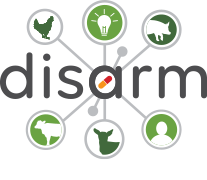Sheep wellbeing – a holistic approach to management
The wellbeing of livestock requires a holistic approach to management. One UK Superfine Merino wool grower demonstrates excellent sheep husbandry that goes above and beyond minimum standards.
Firstly, biosecurity – keeping a closed flock, breeding all replacements on farm and strict biosecurity measures for any farm visitor (i.e., vets/shearers/hauliers). The flock are certified Scrapie–free and Maedi Visna accredited, which demands a better price for the wool but this poses challenges finding breeding animals of equal status.
The sheep are housed in any wet weather limiting damage to the fleece, which is the farm’s main product. The sheds are large, airy, with plenty of bedding and space in the pens, and even toys for the sheep to interact and play with when housed. The opportunity to play and space to socialise with (or avoid) certain flock members are important aspects to sheep wellbeing.
The flock is of high genetic merit and the farmer uses embryo transfer (ET) to maximise the genetic potential and performance of her sheep. They cope well with the steep land and have little issue with their feet – there is not even any detectable footrot on farm. This is attributed to not buying in stock and not trimming feet or footbathing. To ensure their wellbeing, natural mating still occurs alongside artificial mating, which recognises the need for rams to mate.
To facilitate correct dosing when using anthelmintics, the farmer makes use of a weigh crush that is built into a race and handling system. Here she can automatically identify individuals by electronic ear tags, record weights and administer medicines. The handling system reduces stress for workers and sheep. Handling the flock calmly, quietly and with compassion are key elements to good stockperson-ship.
